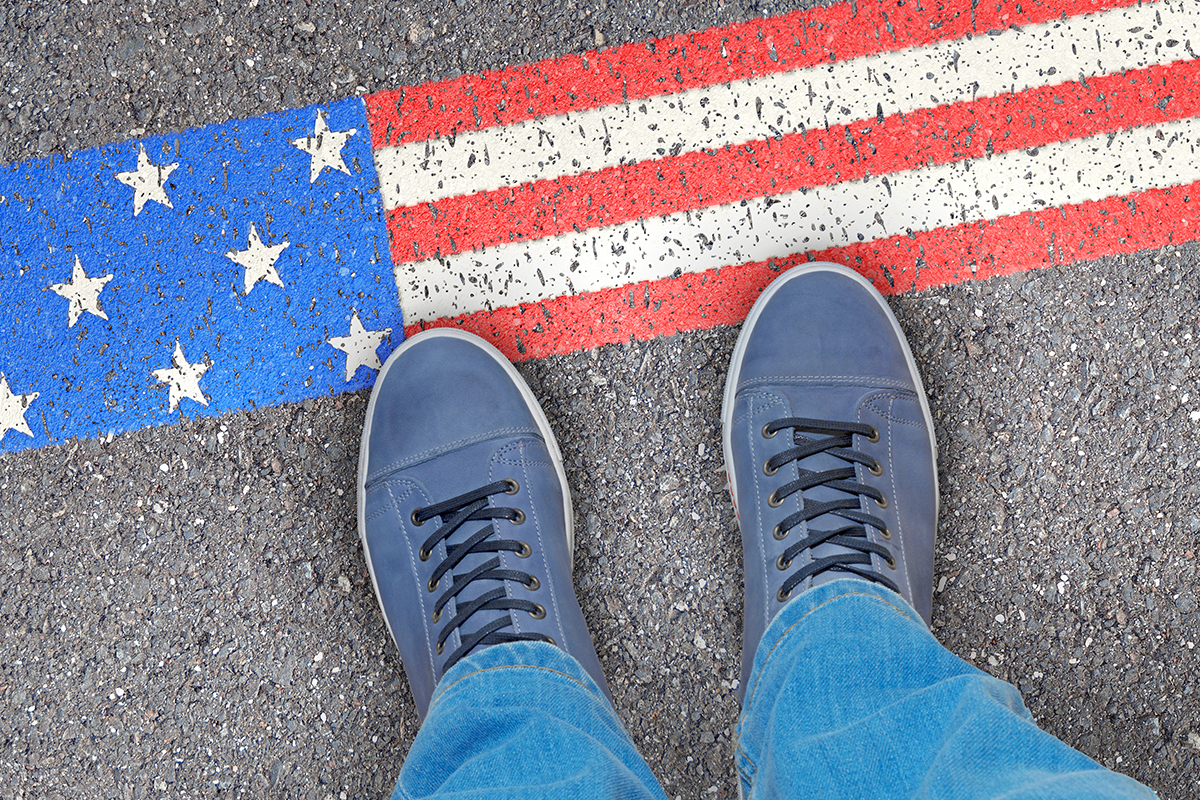If you are looking for a US waiver, you need a criminal defence lawyer in Calgary to look at your case as soon as possible.
Generally, if you have a criminal record and want to come to the US, you will need a US entry waiver.
- However, if you were only found guilty of a provincial offence, like speeding (learn more about speeding ticket cases here), you won’t need a waiver.
- Usually if you have been convicted of a summary conviction offence (a less serious crime with a maximum penalty of two years in jail and/or $5,000 in fines) or an indictable offence (a more serious crime with penalties ranging from two years to life in prison), you cannot enter the US without a waiver.
- Driving under the influence (see our guidance on impaired driving), assault, theft, and having drugs are some of the most common crimes that need waivers.
- Even if you were given a conditional or absolute discharge instead of a conviction for the offence, US border officials may still turn you away
Depending on your situation, the US waiver, which is officially called a “Application for Advance Permission to Enter as a Nonimmigrant,” is usually valid for 1 to 5 years.
You also have to fill out a lot of forms, collect documents like police reports, court papers, and letters of recommendation in order to apply.
Strategic Criminal Defence is a top Google-rated criminal defence firm in Calgary, with over 500 5-star reviews. Our firm, and our experienced legal team, have defended clients in over 10,000 criminal cases. Leveraging our extensive network of lawyers and decades of experience, we help our clients with US waivers.
The lawyers at Strategic Criminal Defence are both highly experienced and dedicated to defending your rights and future in the face of these charges. Contact a lawyer today by calling (403) 719-6410.
Key Takeaways
- A US waiver lets Canadians with criminal records legally enter the US, even though they wouldn’t normally be able to.
- Canadians with criminal records could be stopped at the border, held there, or not let in for a long time if they do not have a waiver.
- If you have been convicted of a summary or indictable crime, such as driving while drunk, assault, drug possession, or theft (learn more about property-related offences), you may not be able to enter the US.
- Even if you were pardoned, had your record suspended, or were given a full or partial discharge, you might still need a waiver because US officials can still see these things in their databases.
- The crime you were convicted of has an effect on your request for a waiver. If you were found guilty of a more serious crime, you need to show more evidence for a successful waiver application
- You can only use US waivers for a short time, usually between one and five years. You will have to get new ones before the old ones run out.
- You need a lot of paperwork to apply, such as fingerprints, court papers, and letters of recommendation.
- If you prepare the right way, many waiver applications go through. If you get help from a lawyer, your chances of getting approved the first time increase.
- It’s important to take your time with your first application because if you get turned down, it can be harder to get a waiver later.
How can a US waiver lawyer in Calgary help?
If you have a criminal record, hiring a Strategic Criminal Defence lawyer can help you apply to get into the United States.
- First, our team will look at your criminal record to see what US border guards can see. We can tell you what crimes make you ineligible and if you can get around them, like with the “petty offence” exemption for small crimes.
- This early review can help you figure out what proof of rehabilitation you’ll need or keep you from applying when you don’t need to.
- When you apply, we’ll know exactly what court papers to get and how to ask for police records, sentencing records, and case dispositions (read more about the court process here).
- We help you write a strong personal statement that explains your recovery and why you want to enter the US. This makes your application a lot stronger.We make sure that all of your paperwork is in order according to US Customs and Border Protection rules.
Above all, we know how to make your case look good to US officials. If there are problems, or your application is denied at first, we can talk to US officials, give them more information, or file appeals for you.
Examples of Situations Requiring a US Waiver
- A man was found guilty of driving while drunk in Calgary. He did what the court told him to do, like pay a $1,200 fine and go to an alcohol education class. Since then, he hasn’t had any more problems with the law. He has to go to meetings in Seattle every three months because his Canadian employer has offices there. Even though his conviction is a few years old, US border guards turned him away when he tried to fly to Seattle. With the help of a US waiver lawyer, he was able to get his police records, court papers, and letters of recommendation together for a waiver application. After he applied for it, he got a three-year waiver that let him go to the US for business.
- A woman was arrested for having cocaine when she was 19. She has been sober for 12 years, done 50 hours of community service, and was released on the condition that she stays sober. Now that she is a nurse, she wants to take her family on vacation to Florida. She thought that her conditional release meant that she didn’t have a criminal record in Canada, but US border officials turned her away because they could still see this information. To apply for a US waiver, she gave her fingerprints, court records showing that she had been conditionally released, proof of community service she had done, character references from her hospital supervisor, and a personal statement about how she had changed. She got a five-year waiver that now lets her go to the US.
- A man got into a fight at a bar when he was 22 and was found guilty of assault. Since paying the $500 fine, he hasn’t had any trouble with the law. He was shocked when the US border turned him away when he tried to go to a trade show in Chicago. He is now forty-two years old and owns a business. Even though it was 20 years ago, he couldn’t go to the United States because of his conviction. It was hard for him to get his original court papers because the case was so old. He also needed to give a criminal record check that showed he hadn’t done anything else wrong and letters of recommendation from business partners and community leaders. He got a five-year waiver that lets him come to the US because it’s been so long since his crime and there is clear proof that he has changed.
Consequences of Not Having a US Waiver When Required
If you have a criminal record and try to enter the US without a waiver, US Customs and Border Protection officers will probably stop you. This can lead to:
- Being sent back to Canada right away and not allowed to enter the US
- Questions about your criminal record that could last for hours
- If you get a formal removal order, you might not be able to enter the US for 5 to 10 years.
If you’re a Canadian who goes to the US for work a lot, having an entry denial on your record can cause problems for a long time, even after you get a waiver. US border guards can ask you more about your criminal record and why you weren’t allowed to enter every time you try to enter in the future.
It can also have a big impact on your finances. If you are turned away, you will lose all the money you spent on flights, hotel rooms, or event tickets in the US right away. Business travellers might miss important meetings, which could hurt their careers or their relationships with other businesses.
Successfully Applying for a US Entry Waiver
These are some of the best strategies to get a waiver to enter the US:
- One of the most important things you need to do to get a US waiver is to show clear proof that you have changed since you were convicted and are now a reformed person. US officials want to make sure you won’t break the law again while you’re in their country.
- US immigration officials are more likely to approve your waiver application if you can show that you have strong and valid reasons for wanting to enter the US. Your application should say why your trip is important and helpful.
- To get your waiver approved, you need to show US officials that letting you in won’t put the US or its people at risk. This means you have to explain the crime you committed and why it isn’t a problem anymore. If you were found guilty of a nonviolent crime like theft, fraud, or property crime, make sure to say that you didn’t hurt anyone and tell the truth about what happened that led to the crime without making excuses. If you were arrested for stealing because you were having trouble with money, write down how your finances have changed since then.








